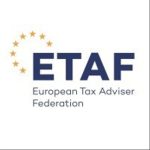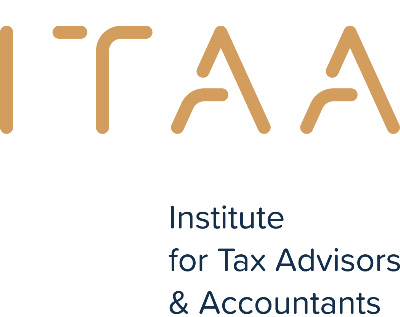Introduction
Smaller, less complex entities play a vital role in the world’s economy. This is especially true here in Europe. The International Audit and Assurance Standards Board (IAASB) believes that in an increasingly complex world with evolving reporting needs, there is a need for a set of high-quality requirements tailored for the audits of less complex entities (LCE) (LCEs are typically small and medium-sized enterprises (SMEs)). The IAASB has noticed the emergence of various jurisdictional-specific LCE or SME standards and considers this is not in the public interest. With this consultation, the IAASB is moving to provide a globally consistent approach. The IAASB strongly encourages all interested stakeholders – including users of financial statements, owners, management, and those charged with governance of entities, preparers of financial statements, professional accountancy organizations (PAOs), regulators and audit oversight bodies, and auditors and audit firms – to provide feedback on the Exposure Draft, Proposed International Standard on Auditing of Financial Statements of Less Complex Entities (Proposed ISA for LCE) by 31 January 2022.
EFAA believes the development of an LCE audit standard to be critical to the future of the SME audit. The new standard has the potential to greatly enhance the efficiency of SME audits and free up time for auditors to provide the advice that SMEs really value. There is considerable evidence, including EFAA research from 2019, to suggest that SMEs and their stakeholders see significant value in an SME audit. However, International Standards on Auditing (ISAs) are generally regarded as complex and burdensome for LCE audits. EFAA has responded (read more below) and has strongly urged SMPs and professional accountancy organisations (PAOs) to also respond to the ED. Indeed, on 19 November 2021, EFAA and Accountancy Europe, with support from the IAASB, held a joint online event A Global Solution for Auditing Less Complex Entities, (see the recording here) to stimulate debate.
EFAA RESPONSE TO PROPOSED ISA FOR LCE
EFAA submitted its response to the Proposed ISA for LCE on 24 January 2022. EFAA’s Assurance Expert Group led the development of our response. The IAASB plans to post all responses on their website here in the coming few weeks. The key points in the EFAA response, set out in the section ‘General Comments on Proposed ISA for LCE’, are as follows:
- We strongly support this project. Furthermore, we urge the IAASB to also reengineer the ISAs using a ‘Think Small First’ approach. While we welcome the Complexity, Understandability, Scalability and Proportionality (CUSP) project, we believe it currently lacks ambition.
- We are keen to see the standard issued sooner rather than later. We feel timeliness is vital: the pursuit of perfection can be the enemy of progress.
- The standard has the potential to drive standardization and consistency of SME audits across Europe. This may aid users understanding as to what the SME audit provides.
- Overall, we agree with the fundamental principles, design, and content of the standard. We especially like the way it follows the logical flow of the audit.
- We are somewhat concerned at the risk of the emergence of two-tier audit market and two-tier audit profession – one using ISAs and another ISA for LCE with users seeing latter as offering inferior quality. This may confuse users and undermine their confidence in audits. The IAASB, IFAC, professional accountancy organizations (PAOs), regulators, accounting firms and others will need to communicate to and educate the audit market to mitigate this risk.
- Similarly, it is vital that the communications and educational activities of the IAASB, IFAC, PAOs, regulators, accounting firms and others on and around the new standard consistently and robustly stress that use of this standard results in an audit of equivalent quality to an audit performed using the ISAs. Every effort needs to be taken to avoid giving the impression that the standard is less rigorous than the ISAs, rather it is a standard tailored to fit different types of entity.
- We have some reservations as to Authority:
- the audit of group financial statements ought to be scoped in – many groups are less complex and, furthermore, if groups are scoped out then this will significantly limit the extent to which the standard can be used and many LCEs forming part of a group may have to conduct audits in accordance with the full ISAs; and
- the LCE concept with its qualitative criteria will be difficult to implement and may result in inconsistent application – we prefer size criteria to have more prominence.
- There is an urgent need for more support and guidance. We recognize the huge training and education effort needed for the effective implementation of the standard. This is the joint responsibility of the Board, IFAC, PAOs and others. We therefore encourage the Board to collaborate with IFAC in developing appropriate support and guidance. We urge IFAC to consider producing a Guide to the Use of ISA for LCEs, emulating its ‘Guide to Using ISAs in the Audits of SMEs’ (‘ISA Guide’).
- We also urge the Board and IFAC to look at ways of placing the standard and guidance onto a common digital platform such that users can easily find the relevant requirements and supporting guidance. e-International Standards (eIS) may provide this platform.
NEXT STEPS
The IAASB has published the following indicative project timeline here. The IAASB advises that forecasted milestones may be subject to change.

EFAA looks forward to continuing to provide further input to this project – in writing, via its representation on the IAASB Consultative Advisory Group (CAG) and at any outreach events – as the draft standard is revised, finalized, and issued. We also look forward to working with the IAASB, IFAC and others to help ensure its timely adoption and smooth implementation.
MORE INFORMATION
To learn more about the Proposed ISA for LCE please consult the following:
- Exposure Draft, Proposed International Standard on Auditing Financial Statements of Less Complex Entities (Proposed ISA for LCE), IAASB
- Summary of the Proposed ISA for LCE, IFAC
- LinkedIn Live Sessions on Proposed ISA for LCEs – video recordings of Session 1, Second 2, and Session 3.
For more information: Please contact Paul Thompson


